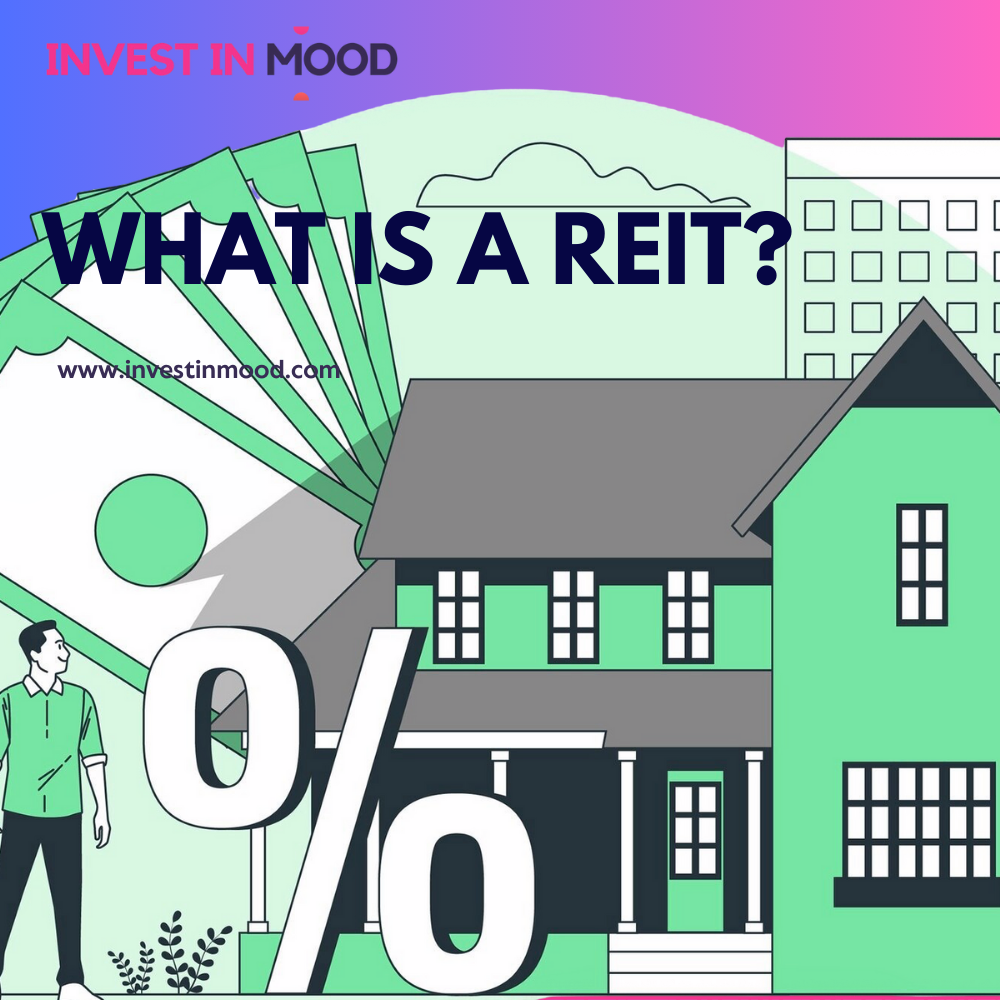
Image Source: [https://www.freepik.com]
Those who want to put money in real estate markets without the hassles of physical property possession are increasingly choosing Real Estate Investment Trusts (REIT). They present a compelling chance to broaden an asset allocation collection and produce payouts as a passive salary stream. Making more effective conclusions can be facilitated by having a more effective understanding of Real Estate Investment Trusts, despite your level of feeling.
We will examine in detail what a Real Estate Investment Trusts is, how it operates, the different types of Real Estate Investment Trusts that are available, and the reasons you might want to incorporate them in your asset allocation schedule in this post.
KEY TAKEAWAYS
What is a REIT
Real estate securities trusts are firms that own, handle, or provide capitalization for in many real estate markets, including retail, commercial, residential, healthcare, and industrial. Real Estate Investment Trusts let individuals allocate in appreciable earnings-producing real estate resources without having to acquire property directly by combining the money of several stakeholders.
The main feature of a Real Estate Investment Trust is its structure, which is intended to function similarly to a mutual fund. It gives capitalists exposure to the real estate platform’s capacity for salary and appreciation while enabling them to make relatively inexpensive and liquid real estate portfolios through the shares trading space.
A business must chase certain legal guidelines established by the government in order to be eligible to become a Real Estate Investment Trust. These in the United States include:
- Income Distribution: A Real Estate Investment Trust is required to pay distributions to shareholders equal to at least 90 % of its taxable revenue.
- Asset and Income Requirement: A Real Estate Investment Trust must maintain real estate as the majority of its investments and generate at least 75 % of its revenue from real estate related sources, such as interest from real estate loans or rental revenue from properties.
- Shareholder Structure: A board of directors must oversee the control of Real Estate Investment Trust, and they must be publicly bought or own a minimum of 100 shareholders.
How Do REITs Work
A diversified collection of properties is usually acquired, owned, and managed by Real Estate Investment Trusts. These properties may include warehouses, shopping malls, hospitals, office buildings, apartment complexes, and more. One of the key draws for earnings-focused capitalists is the regular distributions that are paid to shareholders from the rental earnings generated by these properties.
The two primary forms of Real Estate Investment Trusts structure are equity Real Estate Investment Trusts and mortgage Real Estate Investment Trusts.
- Equity Real Estate Investment Trusts: Equity Real Estate Investment Trusts own and control properties that generate revenue, including residential (apartments, condos) and commercial (office buildings, shopping centers, hotels). Rent collection and property leasing are their main sources of revenue.
- Mortgage Real Estate Securities Trusts: These entities put money in and finance real estate loans or mortgage-backed securities rather than directly owning real estate. These loans could be used for real estate development or acquisition. Mortgage Real Estate Investment Trusts make capital by collecting interest on these securities or loans.
Types of Real Estate Investment Trusts
Real Estate Investment Trusts can be divided into different groups according to their securities structure or the kind of real estate they invest in. The tracking is some of the most common Real Estate Investment Trust types:
1. Equity REITs (Equity Real Estate Investment Trusts)
As previously stated, equity Real Estate Investment Trusts own and run profit-generating properties. They make wealth by collecting rent from tenants. The surge and decline in real estate values, as well as the achievement of the properties they own, are usually reflected in the value of their part. Shopping centers, office buildings, apartment complexes, and industrial parks are a few examples.
2. Mortgage REITs
Mortgage Real Estate Investment Trusts (merit’s) distribute in real estate deficit, such as mortgage loans and mortgage-backed securities, and generate profit by earning interest on these loans. Although MREITs often provide higher yields, they are more vulnerable to changes in interest rates and advance uncertainty.
3. Hybrid Real Estate Investment Trusts
These Real Estate Investment Trusts consolidate the approaches of equity and mortgage REITs. In addition to funding mortgages, these Real Estate Investment Trusts own properties that generate profit. They provide a well-rounded strategy that permits them to collect revenue from both rental properties and real estate amounts unpaid.
4. Industrial Real Estate Investment Trusts
These Real Estate Investment Trusts concentrate on distribution properties, logistics hubs, and warehouses. Due to the growing need for storage and distribution facilities brought on by e-commerce, industrial REITs have grown in popularity.
5. Healthcare Real Estate Investment Trusts
These real estate asset allocation trusts make portfolios in healthcare-related properties, including medical office buildings, nursing homes, and hospitals. Due to the non-cyclical nature of the healthcare sector and the comparatively steady demand for medical facilities, these properties typically provide steady cash flows.
6. Retail Real Estate Investment Trusts
Shopping malls, outlet stores, and other retail properties are owned and operated by retail Real Estate Investment Trusts. However, the increase of e-commerce has put pressure on retail Real Estate Investment Trusts by decreasing the appeal of certain physical retail locations. Still, solid returns can be obtained from premium retail properties in desirable areas.
7. Residential Real Estate Investment Trusts
These Real Estate Investment Trusts concentrate on residential real estate, such as condominiums, apartment buildings, and dorms. They profit from rental profit, particularly in places where there is a high demand for homes. Residential Real Estate Investment Trusts remain a popular option as the population increases and becomes more urbanized.
Why Invest in REITs
An appealing addition to a diversified asset allocation collection, Real Estate Investment Trusts give stakeholders a number of benefits. Here are its major benefits:
1. Mixing: Real Estate Investment Trusts give stakeholders access to real estate markets without requiring them to own individual properties. Real estate can be an opportunity to hedge against exchange fluctuations because it typically performs differently than shares and securities.
2. Convertibility: Publicly bartered real estate asset allocation trusts are listed on major assets markets, in contrast to direct real estate securities, which may lack convertibility. Because of this, participants can obtain and transfer parts with ease, making them extremely liquid. Capitalizing in Real Estate Investment Trusts is similar to financing in any other publicly exchanged company.
3. High Dividend Yields: Real Estate Investment Trusts must give shareholders at least 90% of their taxable profit. revenue-pursuing backers find them attractive because of their above-average dividend yields. Real Estate Investment Trusts often grant steady, dependable payouts.
4. Accessibility: The real estate platform, which was previously only available to rich people and organizations, is now more easily accessible to individual backers due to Real Estate Investment Trusts. Real estate financing is now more accessible because participants can buy stock in Real Estate Investment Trusts for as little as the expense of a single share.
5. Low Minimum Investment: people who put money in traditional real estate usually maintain to obtain entire properties, which can be very costly. However, with comparatively low minimum holdings, Real Estate Investment Trusts give stakeholders access to sizable portfolios of real estate securities.
6. Capital Appreciation Potential: As the underlying properties in their portfolios appreciate in value, Real Estate Investment Trusts may also provide the possibility of funds appreciation in addition to returns.
Risks of Capitalizing in REITs
Real Estate Investment Trusts maintain a lot to present, but there stand risks involved as well. These include:
- Market Risk: REITs are vulnerable to changes in the exchange, just like any other publicly bartered equities. meaningful charge swings can be caused by variables like changes in interest rates, the state of the economy, and investor emotion.
- Interest Rate Sensitivity: Real Estate Investment Trusts may be susceptible to shifts in interest rates, especially mortgage Real Estate Investment Trusts. The profitability of Real Estate Investment Trusts may suffer when interest rates grow because borrowing becomes pricier. Real estate values may drop as an end result of higher rates.
- Sector-Specific Risks: The precise sector in which a Real Estate Investment Trust can own a result on its success. For example, healthcare Real Estate Investment Trusts may encounter regulatory obstacles, while retail Real Estate Investment Trusts may suffer during periods of dwindling foot traffic or the development of e-commerce.
- Private REIT Tradability Threat: Although publicly sold Real Estate Investment Trusts are liquid, buying and selling private Real Estate Investment Trusts can be challenging. Thus, it might be challenging for participants to exchange their holdings in it.
How to Invest in REITs
It is not too difficult to capitalize on Real Estate Investment Trusts. There exist various procedures for this:
- Publicly Sold REITs: These can be bought and sold like regular assets through brokerage accounts. backers can select from a variety of Real Estate Investment Trusts, including equity, mortgage, and hybrid options.
- Private Real Estate Securities Trusts: These Real Estate Investment Trusts are not swapped on public markets. They may carry greater risks, but for accredited capitalists, they can yield expanded returns despite being less liquid.
- REIT Mutual Funds and ETFs: Capitalizing in mutual money or trading Exchange-Traded Funds (ETFs) with a Real Estate Investment Trusts can expose shareholders to a range of Real Estate Investment Trusts in a single security, which is beneficial for those searching for variety. These capital blend the investment of capitalists and make assets in a variety of Real Estate Investment Trusts.
Conclusion
Backers can broaden their portfolios, obtain earnings from earnings, and get exposure to the real estate platform through Real Estate Investment Trusts. They are a desirable option for salary focused capitalists due to their accessibility, tradability, and high dividend yields. However, Real Estate Investment Trusts have risks, such as interest rate sensitivity and venue fluctuations, just like any other asset allocation. Backers can make improved judgments about whether to incorporate Real Estate Investment Trusts into their securities strategy by being aware of the various types of Real Estate Investment Trusts, the advantages they provide, and the risks associated with them.
Frequently Asked Questions
- Variation: You can make your asset base more diversified by funding in it instead of acquiring property control physically.
- Convertibility: The shares platform provides easy access to capital through the purchasing and selling of publicly bought REITs.
- High payouts: Real Estate Investment Trusts must pay out at least 90 % of their taxable profit in returns, which provide enticing returns.
- Accessibility: Individual stakeholders can now put money in real estate through REITs, which require less investment than buying a house.
- Capital Appreciation: The possibility of a raise in the Real Estate Investment Trusts is properties worth.
- Rent: Rent is generated by the stake and supervision of earnings–producing properties by equity Real Estate Investment Trusts.
- Mortgage Real Estate Securities Trusts: capitalize in mortgage – backed securities or real estate loans to generate interest salary.
- Hybrid Real Estate Securities Trusts: These are a mix of mortgage and equity REITs that make assets in real estate amounts unpaid as well as physical properties.
- Sector Distinct Real Estate Securities Trusts: These are Real Estate asset allocation Trusts that focus on precise real estate markets, like retail, healthcare, industrial, or residential.






